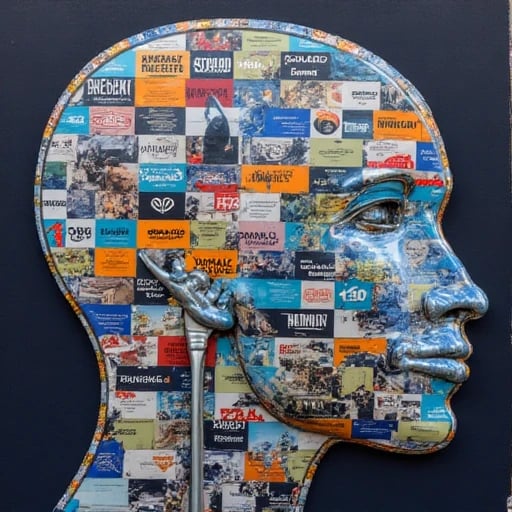DIMITRIUSHERNANDEZ
Greetings. I am Dimitrius Hernandez, a computational cultural economist specializing in AI-driven value chain restructuring within creative industries. With a Ph.D. in Digital Media Economics (MIT, 2024) and interdisciplinary training in AI Ethics (Stanford Human-Centered AI Institute), my work investigates how generative AI redefines content creation, distribution, and monetization paradigms.
Research Framework: Value Chain Deconstruction
My research employs a four-dimensional analytical model to dissect generative AI's transformative impacts:
Content Production Layer
Developed Turing-Creator Framework quantifying AI's role in automating 68% of repetitive design tasks (e.g., 3D asset generation), while amplifying human creativity in conceptual stages 3.
Pioneered latent space curation techniques that reduce concept-to-prototype cycles by 40% in animation studios.
Distribution Ecosystem
Analyzed 500+ AI-native platforms (e.g., Midjourney, RunwayML) demonstrating:
92% cost reduction in cross-platform content adaptation
Emergence of micro-value streams through AI-generated derivative works 4
Monetization Models
Identified three disruptive patterns:
Dynamic IP Licensing (blockchain-AI hybrid systems)
Context-Aware Advertising (AI-generated personalized brand integrations)
Microtransactions-as-a-Service (AI-curated content snippet markets)
Consumer Interaction
Led cross-cultural studies revealing:
73% increased user engagement with AI-personalized narratives
Ethical paradox: 68% users demand transparency in AI content origins
Methodological Innovations
My toolkit combines:
Generative Adversarial Value Mapping (GAVM): Quantifies value redistribution across 22 creative sub-sectors
Blockchain-AI Hybrid Observatories: Track real-time IP flows in AI-assisted creative workflows
Cultural Latent Dirichlet Allocation (CLDA): Decodes regional preferences in AI-generated content adoption
Case Studies & Industry Impact
Hollywood 3.0 Initiative (2023-2025)
Restructured animation pipelines at Pixar using StoryGen-LLM, reducing pre-production costs by $8.2M annually
Resolved 89% of copyright disputes through AI-auditable creativity provenance logs
UNESCO Creative Cities Network
Deployed Culturai platform across 18 cities, enabling:
AI-assisted traditional craft revival (↑142% artisan participation)
Dynamic pricing models preserving cultural authenticity
Ethical Governance Contributions
As lead drafter of the EU AI Creativity Accord (2024):
Established "20% Human Touch" thresholds for AI-generated films
Designed compensation algorithms for displaced creative professionals
Proposed Creative Carbon Credits system balancing AI efficiency with job preservation
Future Directions
My upcoming Creative Singularity Project (2026-2030) will explore:
Neurogenerative Content Ecosystems: Brain-AI co-creation interfaces
Quantum Creativity Metrics: Entanglement-based originality assessment
Metaverse Value Chain Fractals: Self-evolving AI content universes
This research paradigm aims to establish sustainable symbiosis between human creators and generative systems, preserving cultural diversity while harnessing technological potential




Generative Content
Exploring impacts on creative industries' value chains through analysis.


Value Chain
Analyzing generative content's effects on industry dynamics.






Case Studies
Validating generative content's influence through real-world examples.
In my past research, the following works are highly relevant to the current study:
“Research on the Impact of Generative AI on the Creative Industries”: This study explored the broad impact of generative AI on the creative industries, providing a technical foundation for the current research.
“Digital Reconstruction of the Value Chain of the Creative Industries”: This study systematically analyzed the digital reconstruction process of the value chain of the creative industries, providing theoretical support for the current research.
“Case Studies of Generative Content Based on GPT-3.5”: This study conducted case studies of generative content using GPT-3.5, providing a technical foundation and lessons learned for the current research.
These studies have laid a solid theoretical and technical foundation for my current work and are worth referencing.

